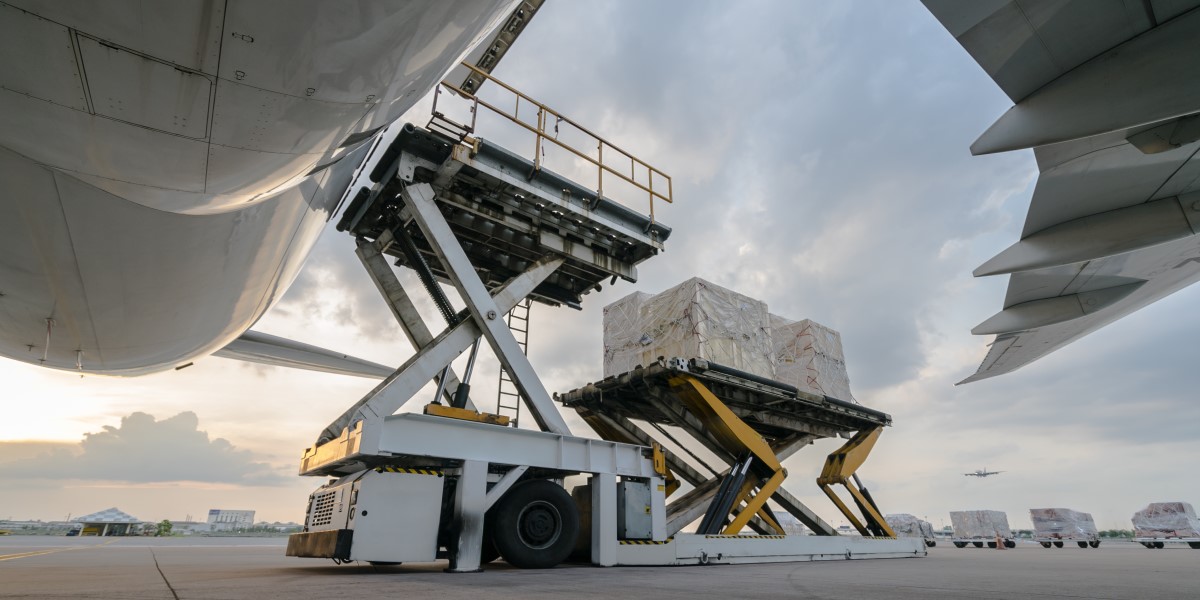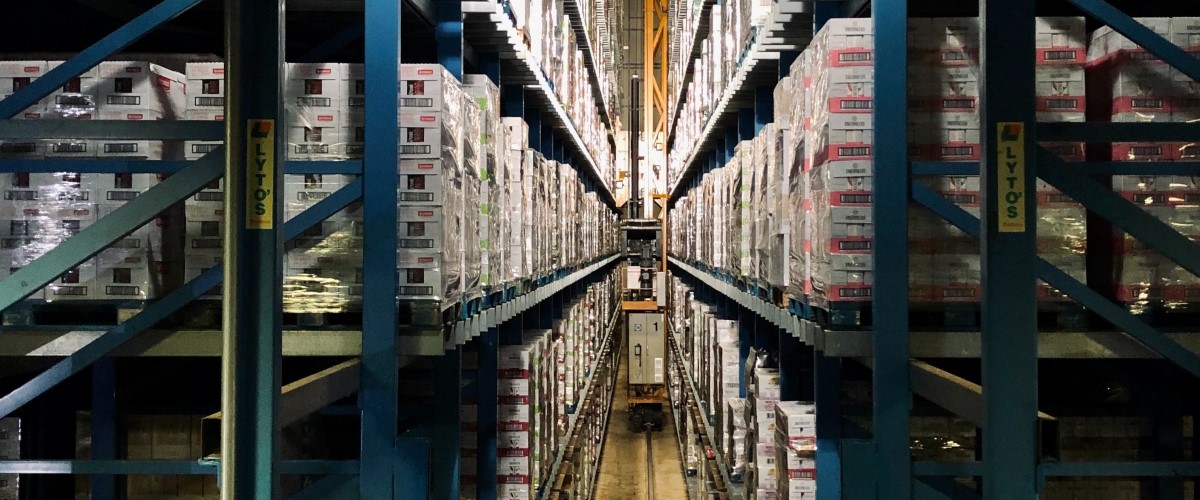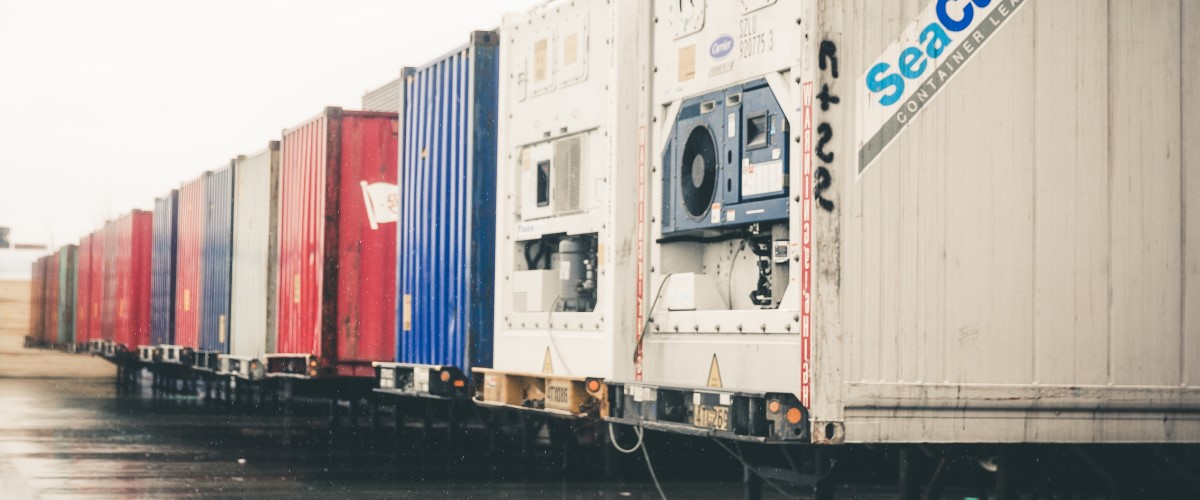Shipping Food
A comprehensive guide to exporting and importing food in Canada.
With 40 years of experience in the shipping industry, Canaan Group has extensive knowledge of everything required to export or import food. We have the resources and know-how to coordinate shipments with expediency and expertise. Because we either own or have long-standing partnerships along every part of the supply chain, we offer exceptional flexibility and control while minimizing delays and reducing risks to our clients.
Our seasoned staff can help respond to unexpected situations with confidence. With our experience in shipping a wide range of commodities (fresh, chilled, frozen, packaged), we understand the nuances of shipping various food products. We are proud of our services and pleased to help you with your food shipping needs, whatever they may be.
Shipping Food - General Information
Whether you are importing or exporting food, there are some basics you need to be aware of. You need to understand your product – for example, its shelf life, the value of the goods, quantity, and when you’re planning to ship. Knowing these things will help us determine what type of shipping is most appropriate.
Types of Shipping
The main types of shipping are by air (cargo aircrafts), by sea (container ships), or by truck. Air transport is faster but more expensive. This option is most suitable for perishable products where time is of the essence. For example, fresh blueberries or cherries have a short shelf life before they grow moldy. In these cases, shipping by air is the better option. Frozen blueberries or Chinese sausages, however, can be shipped by containers because they can last longer. Another factor to consider is the value of the goods. Horse meat is best shipped by air because it is an expensive product. At Canaan Group, we will walk you through the options to find the optimal shipping solution for your food.

Before You Ship - Product Information & Insurance
When you ship with Canaan Group, you will need to provide us with the weight, dimensions, number of pallets, delivery window, and temperature requirements. From the time we pick up the goods, we pay close attention at every step, ensuring the safe handling and storage of the food. We ensure that the packing is done properly and that the proper temperature is maintained. We will also clarify with you whether the terms are door to door delivery or to the airport or port.
Canaan Group can also guide you in deciding your insurance needs. Not all food products are covered and some spoilage is only covered up to a certain percentage. Airlines and carriers only provide minimal insurance so you may need to buy additional insurance.
Real-Time GPS and Data Tracking
Our real-time GPS and data trackers go in with your shipments and ping the satellites every 20 minutes. These trackers measure the temperature, shock, humidity, luminosity (light), and location. If your shipment has been tampered with, the luminosity reading will show that your container door has been opened. Unlike traditional tracking which only shows you certain checkpoints along the shipping process, our real-time GPS allows you to know exactly where your product is and its surrounding environment at any given moment.
Documentation
Finally, Canaan Group will assist you in gathering and submitting all relevant documentation so that your shipments can be processed smoothly. If you’re exporting, this would include the CFIA certificate, certificate of origin, and any food-specific documents required (e.g., Slaughter date letter for pork.) On the destination side, they may need special permits for customs, inspection agency requirements, and/or their version of FDA (Food & Drug Administration) requirements. With offices in 75 countries, we have local experts who can provide on-the-ground answers to any questions.

Importing Food to Canada
Importing food into Canada has certain requirements. According to the Government of Canada’s Guide to Importing Food to Canada, it’s your responsibility as an importer “to make sure the food you import is safe and that it meets Canadian requirements.” Canaan Group has been assisting customers with importing food for decades, including the more recent establishment of the Safe Food for Canadians Regulations (SFCR) program and we suggest that you review the following and allow us to manage this process for you. By working with our company, you can save yourself time and the headache of filling out the numerous forms. As the importer, you are ultimately responsible for all information and forms and are subject to enforcement and inspection, but we will assist you in whatever ways possible.
Before You Import
The first step before importing is to know the food you will be importing. Having a good understanding of the food, including knowing its common name that matches with Canada customs, type, packaging, and quantity you intend to import is foundational to food safety. You also need to know the hazards that apply to the particular food, as well as how to eliminate them from occurring. Find out about the supply chain(s) for the food you want to import – is the food coming directly to Canada from the manufacturer or is it being processed in another country before entering Canada? Does it need additional labeling or treatment when it arrives in Canada?
Next, make sure you address the following three categories of requirements related to importing food in Canada:
- Food requirements. The food itself needs to meet general safety requirements including how it’s manufactured, prepared, stored, packaged, and labelled. You also need to know about requirements related to standards, grades, labelling, and net quantity. Certain foods are subject to other regulations, for example Health of Animals Regulations, Plant Protection Regulations, or Food and Drug Regulations. Foods may also be regulated under additional departments apart from the Canada Food Inspection Agency (CFIA).
- Importer requirements. To import, you need to have a Safe Food for Canadians Regulations (SFCR) license. Canaan Group will help you register your business for a My CFIA account as well as fill in the SFCR for you. After the CFIA reviews it, they will issue an invoice for payment and then issue your license. You also need to have a Preventative Control Plan (PCP). Canaan Group will aid you in creating this plan which shows what measures and controls are taken to make sure the food is safe and fit for human consumption and complies with Canadian requirements. Additionally, Canaan Group will help you develop traceability records of where you sourced your food from and who you sold it to, as well as a recall and complaints procedure to show how you will receive, investigate, and respond to complaints and prepare for potential recalls. Finally, it is your responsibility to make sure that the food to be imported is prepared under similar conditions as food prepared in Canada.
- Procedure requirements. As an importer, you need to follow certain procedures relating to your shipments. CFIA needs information about each of your shipments and both CBSA and CFIA must be notified of all food shipments imported into Canada. Canaan Group is familiar with these requirements and can help you make sure they are all met.
After you’ve addressed these requirements, you need to choose an appropriate foreign supplier. Depending on the type of food you are importing, the type of supplier most appropriate for your business will vary. However, regardless of the type of supplier, as the importer, you need to ensure that the food is being manufactured, prepared, stored, packaged, or labelled under the same conditions as required in Canada. Where your supply comes from depends on the type of food it is, and the type of information you need from your supplier will vary depending on the food itself, the types of processes or activities the food is subject to, and whether there are existing oversight measures in place for the supplier.
When It's Time to Import
Canaan Group will help you provide the CFIA and CBSA all the relevant information about each of your shipments.
After You've Imported
Once your imports have arrived, it is important for you to keep clear traceability records that track the immediate supplier to the immediate customer (including names, addresses, and dates of all parties). These records need to be accessible in Canada for two years. You also need to maintain your Preventative Control Plan, reassessing it and updating it regularly. A two-year record is required of all the documents you receive from your supplier that demonstrates the effectiveness of your PCP. Should you receive a complaint, you need to keep clear documentation of it and any subsequent responses and notify the CFIA if necessary. If a recall is implemented, you need to notify the CFIA immediately and keep a clear record of all the details related to it. Once every 12 months, you must simulate a recall using your written procedure and document the details. All these records must be kept for 2 years.
For more detailed information about importing food into Canada, please visit the CFIA’s Step-by-step Guide: https://www.inspection.gc.ca/importing-food-plants-or-animals/food-imports/step-by-step-guide/eng/1523979839705/1523979840095

Exporting Food from Canada
Exporting food out of Canada has certain requirements. According to Government of Canada’s Guide to Exporting Food, there are four main steps in the process:
- Meet the requirements for exporting the food,
- Obtain export certification,
- Validation or verification by the foreign country, and
- Ship the food for export.
In order to export a food, you need a compliant food commodity, preventative food safety control measures, traceability procedures, a valid Canada Food Inspection Agency (CFIA) license, and documentation of all relevant export information.
Your scope of responsibility depends on whether you are a manufacturer or a trading company. If you are a manufacturer, you will need to ensure all the requirements are met. If you are a trading company, you will need to obtain proper documentation from the manufacturer.
It’s also important to consider your relationship with the importer. Have you exported to that company before? Are they a regular importer? What are the terms? For example, is it door to door, or ship to port/airport?
Requirements for Exporting the Food
Depending on the specific type of food you are exporting, you will have particular requirements to meet. Generally, however, your business needs to be licensed or registered with the CFIA. Your business must also have a Preventative Control Plan (PCP) in place. This is a document that shows how hazards and risks to food commodities are controlled. The food product will also be subject to inspection, the frequency of which being dependent on the type of food being exported. You are also required to keep traceability records, indicating information about the distribution of the food you export, as well as lot accountability, indicating all the details related to each lot.
There may also be food-specific requirements you need to comply with. For example, for ractopamine in pork, for organic products, or for halal meat to Muslim countries.
Additionally, you must meet any foreign country requirements. You are responsible for knowing and adhering to these requirements.
Export Certification
Before shipping your food products, you must request a certificate from the CFIA to prove that your food is compliant. The process for obtaining a certificate will vary, depending on the food product, but it could include submitting supporting documents, paying associated certification feeds, and inspection/sampling of your product.
Some export certificates can be requested online. Canaan Group can assist you with this.
Foreign Country Validation or Verification
Sometimes this step happens before you can export to a foreign country; sometimes, it is because your establishment is on the country’s eligible establishments list. The foreign country evaluates your establishment to validate or verify it before they accept products from you. This may involve having their representatives visit your establishment or auditing the CFIA’s inspections and findings.
Shipping the Food
You should be ready to ship your product once you have your certificate from the CFIA. You must adhere to the dates and requirements listed on all the certificates and keep clear records that show you’ve met the food safety requirements for the transportation and storage methods. Canaan Group will help you in controlling certificates and certificate numbers to ensure a smooth process for delivering the food.
It is important to work closely with the importer to prepare for possible situations where your product may be held in a “test and hold” status while it is sampled and tested for local food safety requirements.
Here’s what a typical shipment process with Canaan Group looks like:
- Quote – Quote requested and provided by our team
- Booking – Shipment is booked and a booking confirmation is sent to you
- Delivery to Port – Cargo is transported from your facility or your supplier’s facility to the airport, port, or truck terminal (in some cases, it is loaded into a container at a container loading facility)
- Documentation – All the relevant documentation is submitted
- Transportation - Cargo loaded onto aircraft, ship, or truck, and sent to its destination
- Customs - Provide relevant documents and clear customs at destination
- Delivery - Cargo delivered to your customer's office, warehouse, or wherever you need it to go
With our decades of food shipping experience, Canaan Group is equipped and ready to help you with your food shipments, whether you are importing or exporting in Canada.

Book a Consultation
If you are looking to ship food, book a consultation with us. We can discuss your needs, answer your questions, explain how it works, and explore your options to help you create a customized shipping plan. We can also give you a quote on your project so you know how best to move ahead. We look forward to serving you!

